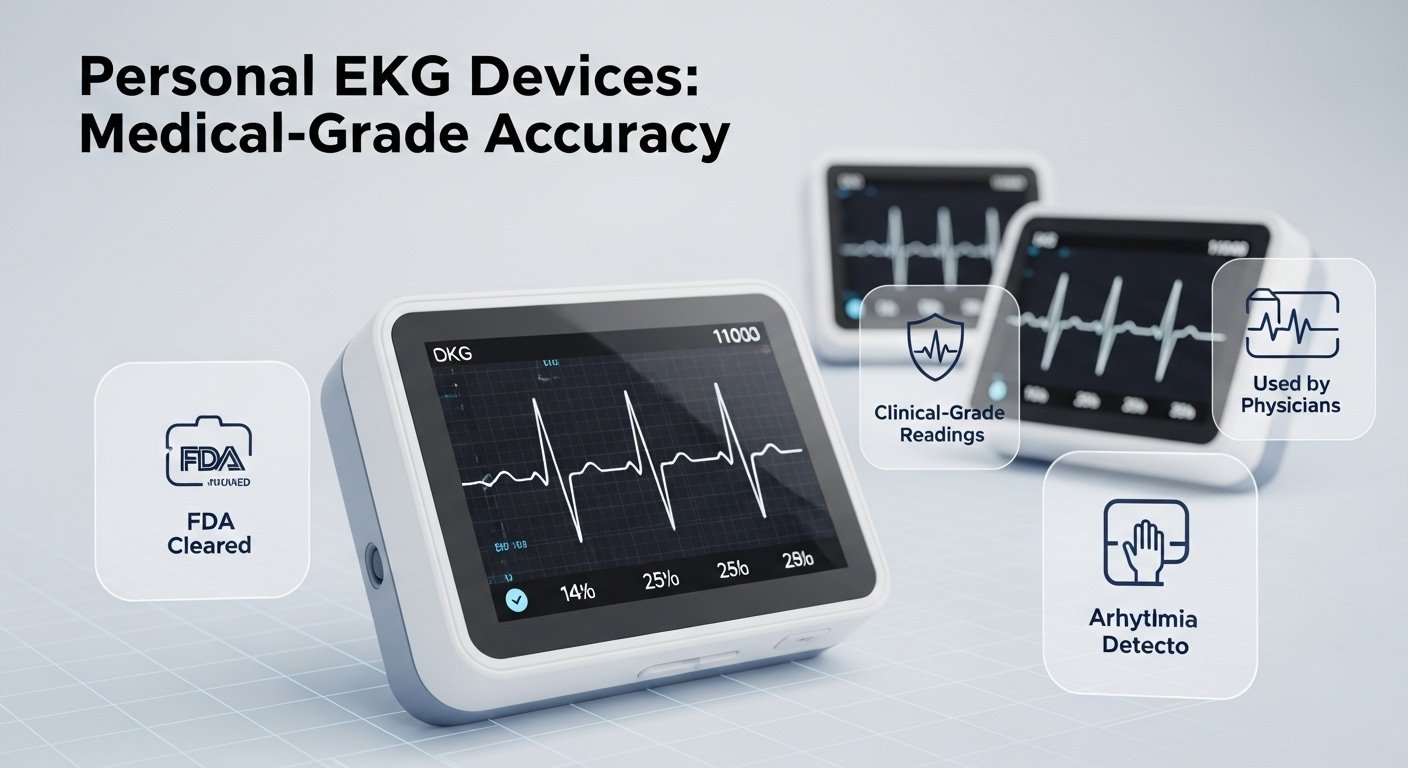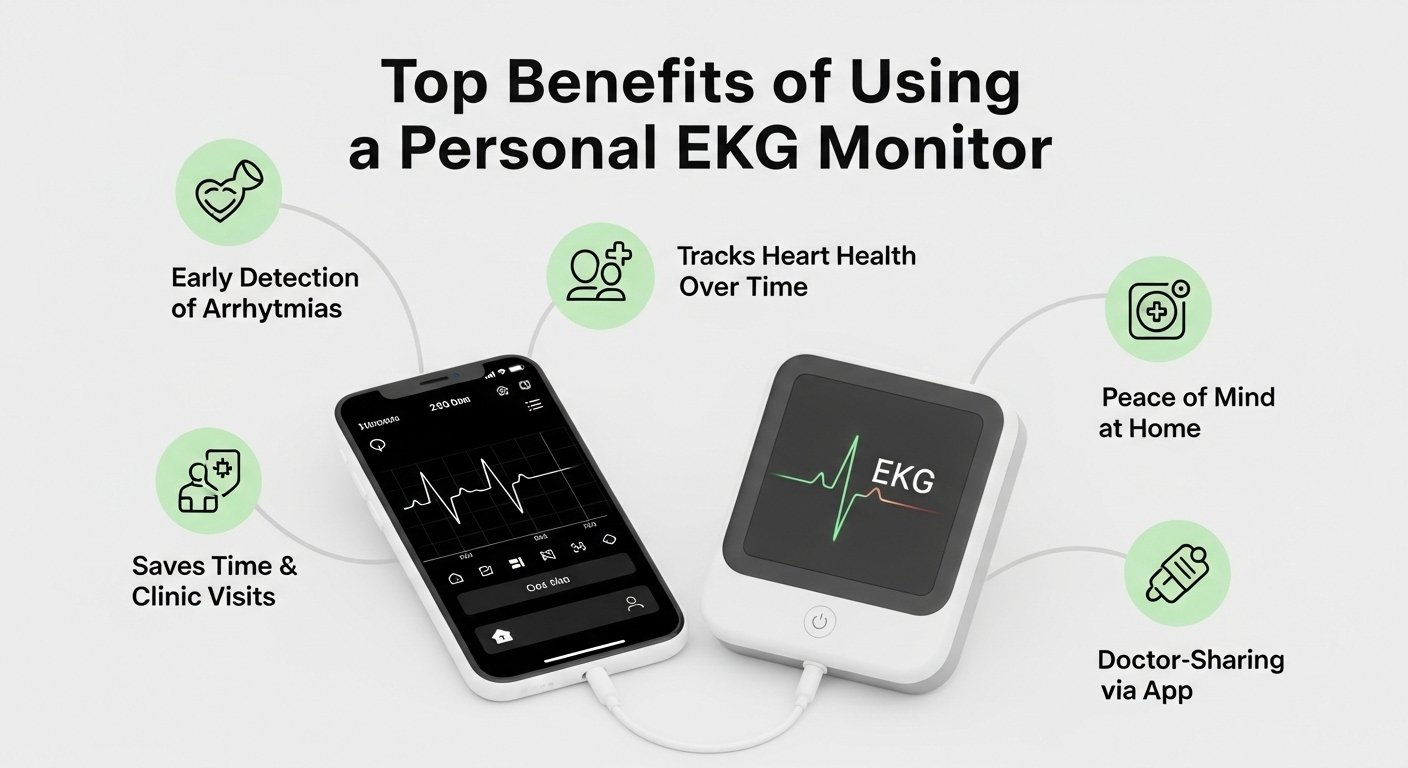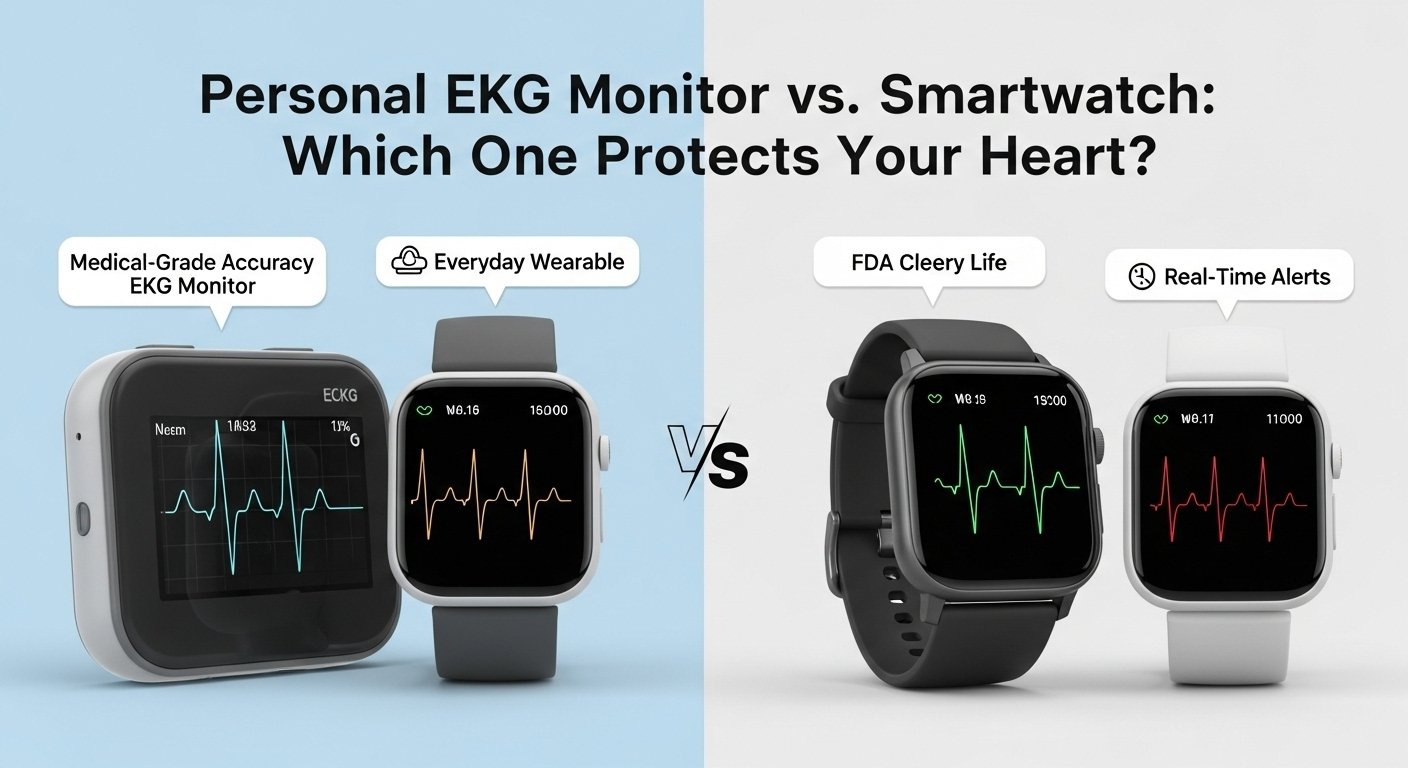Heart health is no longer just your doctor’s job. Today’s technology allows you to take your well-being into your own hands. Two popular tools on the market, a smartwatch and a personal EKG monitor, both offer different approaches to heart monitoring. But which one truly protects your heart when it matters most?
Let’s dig deep into both and uncover which option is better suited for long-term cardiovascular care.
Understanding What’s at Stake: Your Heart Health
The heart works silently until something goes wrong. Irregular rhythms, skipped beats, or prolonged palpitations can often go unnoticed until they cause serious issues. That’s why wearable tech has seen a massive rise in popularity. It promises to track your heart health in real-time, but accuracy is everything for heart monitoring.
A personal EKG monitor is specifically designed for one purpose: monitoring the electrical activity of your heart. Unlike most smartwatches that multitask with fitness tracking, sleep analysis, and notifications, this device zeroes in on precision.
Let’s now explore how smartwatches fare in this heart-health competition.
Smartwatches: Stylish Health Companions
Smartwatches are incredibly popular for daily health tracking. From counting steps to measuring heart rate and sleep quality, they fit seamlessly into your lifestyle. Some models even offer single-lead ECG (electrocardiogram) functionality, making them a decent option for casual heart monitoring.
Pros of Using a Smartwatch:
- Tracks heart rate continuously
- Sends alerts for high or low heart rate
- Offers fitness and sleep data
- Pairs easily with mobile apps
- Discreet and fashionable
Limitations:
- Uses optical sensors, which can be inaccurate during motion
- Typically limited to a single-lead ECG
- Less reliable for detecting serious arrhythmias
- Often not FDA-cleared for medical diagnostics
While smartwatches offer convenience, they may not be the best choice for those who need precise, clinical-grade heart data.
Personal EKG Devices: Medical-Grade Accuracy
A personal ECG monitor is specifically designed for accurate heart monitoring. These devices use electrodes — the same technology found in hospital-grade machines — to detect electrical activity in the heart. Many are even FDA-cleared and recommended by cardiologists.
Benefits of Personal EKG Monitors:
- Provides multi-lead EKG readings (more than just one perspective)
- Detects arrhythmias like AFib, bradycardia, and tachycardia
- Delivers accurate readings in under 30 seconds
- Often includes features for remote sharing with healthcare providers
- Affordable and compact
These devices are ideal for people with existing heart conditions, seniors, or anyone who wants reliable at-home heart health monitoring. When exploring heart health tech, many wonder about the difference between an ECG watch vs device.

Comparison Chart: Smartwatch vs. Personal EKG Monitor
| Feature | Smartwatch | Personal EKG Monitor |
| Primary Function | General wellness tracking | Accurate heart rhythm monitoring |
| ECG/EKG Capability | Single-lead ECG (basic) | Multi-lead EKG (clinical-grade) |
| Sensor Type | Optical + basic electrical | Electrical electrodes |
| Accuracy for Arrhythmias | Moderate | High |
| FDA Clearance | Some models | Most models |
| Ease of Use | Worn continuously | Used when symptoms occur or regularly |
| Data Sharing with Doctors | App-based, limited | Full EKG reports (PDF/export options) |
| Price Range | $150–$600 | $80–$250 |
| Best For | Fitness and lifestyle users | Individuals focused on heart health |
Top Benefits of Using a Personal EKG Monitor
- Early Detection of Serious Conditions
You might not feel symptoms, but the best heart rate monitor can detect irregular rhythms in real time and notify you before it’s too late. - Share Data Instantly with Your Doctor
Most devices let you download and share your EKG results easily—no appointment required. - Peace of Mind
Especially for those living with existing heart conditions or recovering from surgery, these devices offer reassurance and daily confidence. - Affordability
Unlike frequent doctor visits or renting Holter monitors, personal EKG monitors are often a one-time purchase that pays off. - Mobility and Convenience
No wires, no appointments, no stress. Just instant heart health data at your fingertips, wherever you are.

How to Choose the Right Device for You
Choosing between a smartwatch and a personal EKG monitor depends on your health priorities, lifestyle, and the level of detail you need in monitoring.
Here’s how to break it down:
- Fitness-Focused? A smartwatch might be enough.
- Have a heart condition or family history of one? Go with a dedicated personal heart-tracking device.
- Busy professional who needs convenience and reliability? Some hybrid models may meet your needs, but always consider clinical accuracy.
Can You Use Both Together?
Absolutely. Many users find value in using both a smartwatch and a personal EKG monitor. The smartwatch keeps tabs on everyday patterns, while the EKG monitor is used when symptoms arise or for scheduled checks. This dual approach offers the best of both convenience and accuracy.
Real-Life Case Study: John’s Journey With Heart Monitoring
John, a 54-year-old office manager, began experiencing occasional dizziness and mild chest discomfort. He wore a smartwatch daily, which showed fluctuating heart rates but no actionable insights.
After discussing this with his physician, John bought a personal EKG monitor. Within days, the device captured episodes of PVCs (premature ventricular contractions)—something his smartwatch had missed.
Thanks to these results, his cardiologist diagnosed a mild arrhythmia early and guided him through successful lifestyle changes and medication. Today, John monitors his heart weekly with the same device and feels in control of his health for the first time in years.
FAQ: Quick Answers Before You Decide
Q1: Can I use a smartwatch instead of a dedicated device?
A: You can—but you may miss critical heart data. Smartwatches offer convenience, but personal EKG devices are built for precision and reliability.
Q2: Are wearable EKG devices safe for daily use?
A: Yes. Most are FDA-cleared and safe for routine self-checks. These wearable EKG device options are simple, non-invasive, and user-friendly.
A: That depends on your health history. If you’ve had heart issues, daily or weekly use is smart. If you’re symptom-free, occasional use when you feel off is still a great precaution.
Your heart doesn’t wait for annual checkups to signal a problem, so why should you? With the rising accuracy and accessibility of personal EKG devices, you no longer have to rely on guesswork or delayed appointments to understand your heart’s rhythm. An EKG smartwatch comparison shows that while smartwatches offer convenience, dedicated devices provide superior precision.
Smartwatches have their place for identifying arrhythmias that could lead to serious conditions like AFib or stroke, but a dedicated personal EKG monitor offers the focus and precision your heart deserves.
[CTA] Heart health can’t wait. Detect irregularities before they become emergencies with a reliable EKG monitor. Get yours today and protect what matters most!


